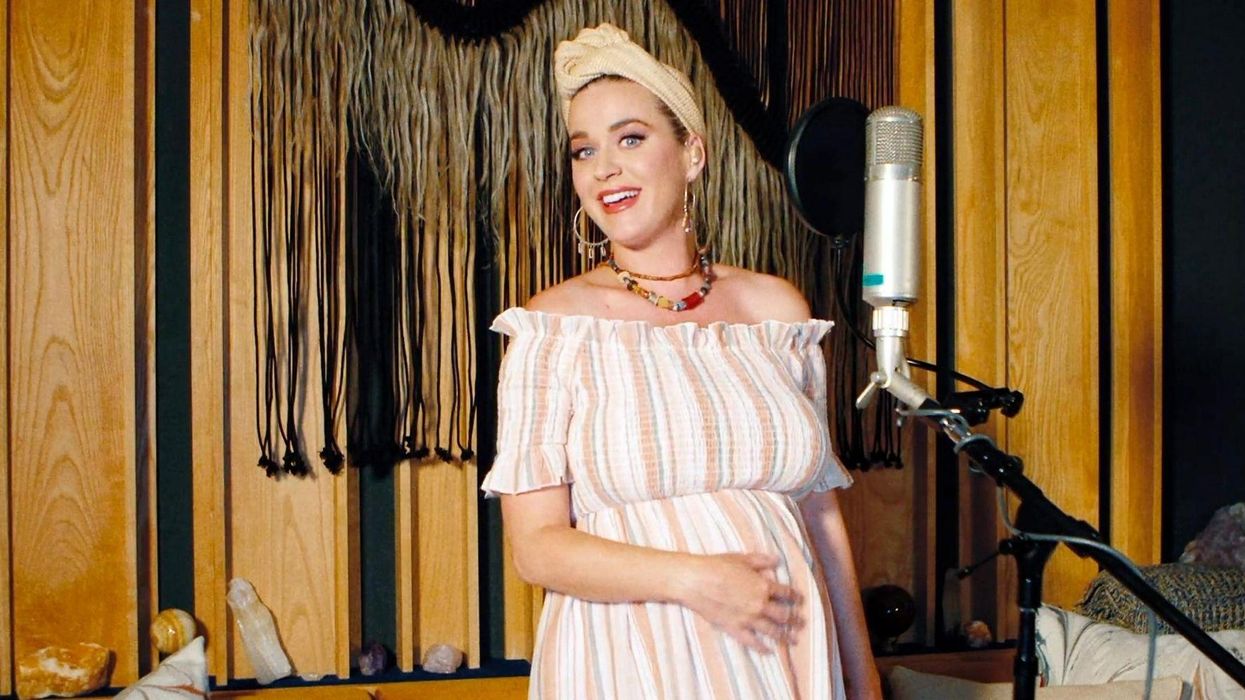Louis Staples
Aug 27, 2020

Getty
Katy Perry and Orlando Bloom have announced the birth of Daisy Dove Bloom, their first child together.
In the midst of all the uncertainty of 2020, Katy Perry’s pregnancy feels like one of the only things that’s been constant and allowed people to feel happy, even for a brief second. Over the last few months, as Perry wrapped filming on another season of ‘American Idol’ and promoted her album, it seems like she (and her bump) have been everywhere.
After revealing her pregnancy in a music video in March, Perry delivered a stunning virtual reality performance from her home while heavily pregnant. And following weeks of seemingly relentless album promo, she and Bloom publicly announced the birth of Daisy via Unicef charity announcement. The happy news came on the eve of the release of Perry’s fifth studio album ‘Smile’ and fans were quick to notice the similarity between the name of Perry’s new arrival and her lead single ‘Daisies’.
Perry’s very open approach to her pregnancy feels like a stark contrast to how other pop stars have often been made to feel uneasy in this part of their lives.
Take Britney Spears, who was hounded by paparazzi throughout her pregnancy. Her decision to take a two-year break from music to have children coincided with an unsavoury fixation with her personal life and changing body.
In 2005, Spears attempted to combine motherhood with her music in the song ‘Someday’. It didn’t even chart in the US and was one of her lowest performing singles ever. Fans largely rejected Spears’s wholesome rebrand and critics even suggested that it was “disconcerting” to see Spears with “that huge belly, singing about motherhood".
After Spears had her children, she continued to be hounded by paparazzi, presumably desperate to catch a shot of her being a “bad mom”. Her every move was dissected and so much of the discourse surrounding her “personal struggles” has been punctuated with unsubstantiated questions over her fitness as a parent, which she’s constantly tasked with defending.
And as recently as 2013, with clear distance from her troubles of 2007-08, Spears was still being asked about how her sons feel about her “sexual” outfits and performances. (Which is, just, not our business?!)
It goes without saying that musician fathers aren’t asked about their children as much, or in the same way.
While it’s almost celebrated for male rock stars and rappers to father many children, for women it’s too often seen as some sort of conflict with their success. In 2020 this is still very much a thing: just look at the way Kelly Clarkson, who gave birth in 2016, was forced to shut down the cruel suggestion that her busy schedule was to blame for her divorce and caused her to neglect her kids and family.
When Cardi B took a similarly unapologetic approach as Perry to her pregnancy last year, she was inundated with questions about how she’d combine music and motherhood and even faced suggestions she should retire because having a baby would “ruin her career”. Despite male rappers never facing this intense probing, Cardi insisted “I can do both”. And so she has.
On the face of it, there might seem like there’s nothing average about Perry’s pregnancy.
After all, she’s a famous musician with more Twitter followers than the population of the UK, Canada and Australia combined. What’s normal about that?
But over the last few months Perry has done as pregnant women all over the world do, getting on with life and work in the best way she can.
Of course Perry’s pregnancy hasn’t ended discrimination against women and mothers in music or elsewhere. As a woman in the music business, this ain’t her first time at the rodeo, and she’ll be well aware that clunky questions, double standards and misogynistic discourse will follow her as she embarks on this new phase.
But so far, Perry’s pregnancy and the reaction to it, in the bizarre madness of 2020, feels like a distinctly… normal moment? And for women in music, the possibility of this normal reaction actually becoming the norm feels like a potential step forward.
Top 100
The Conversation (0)













